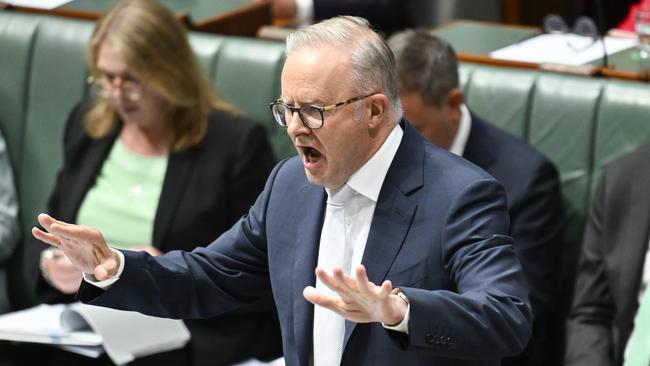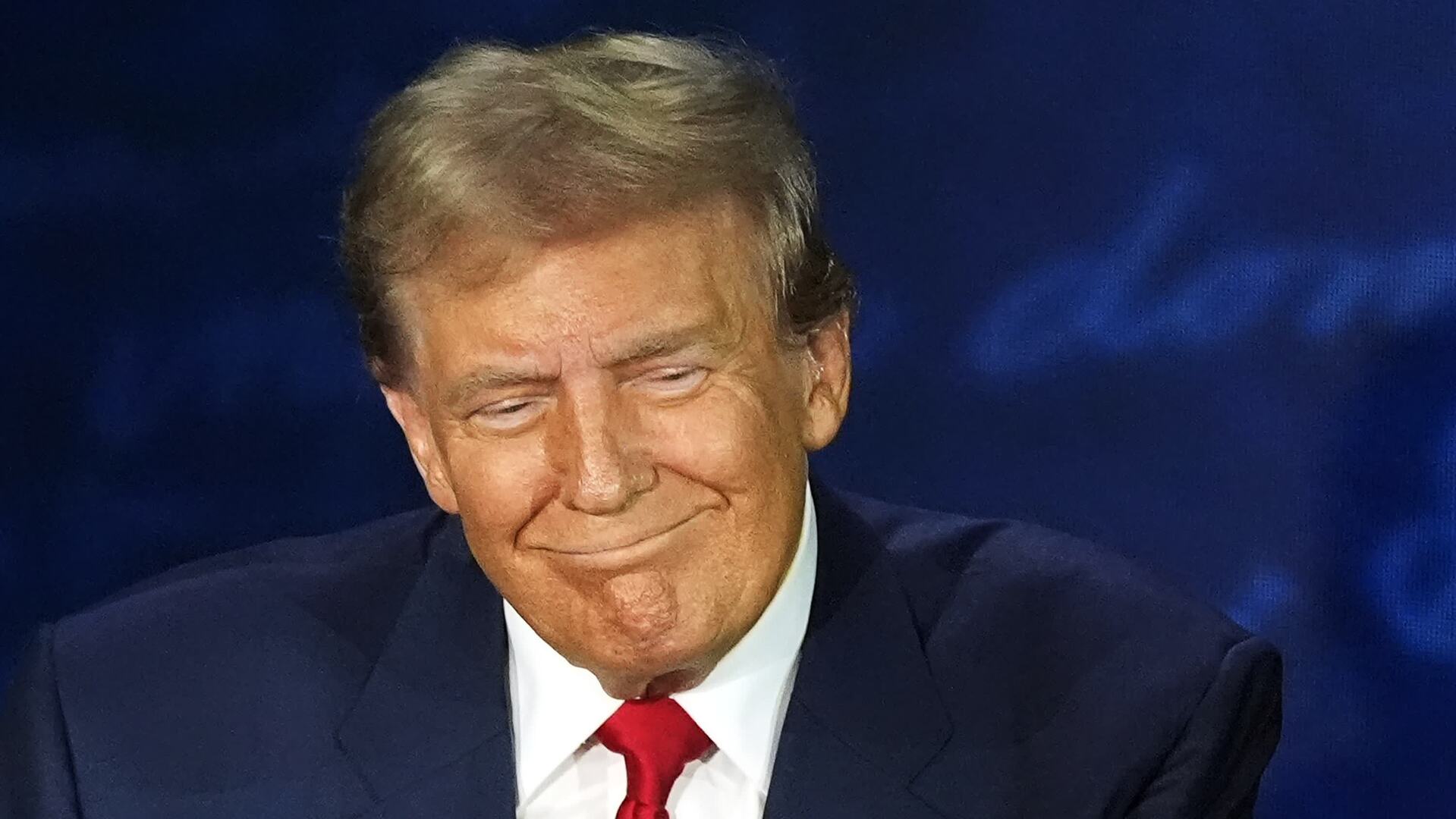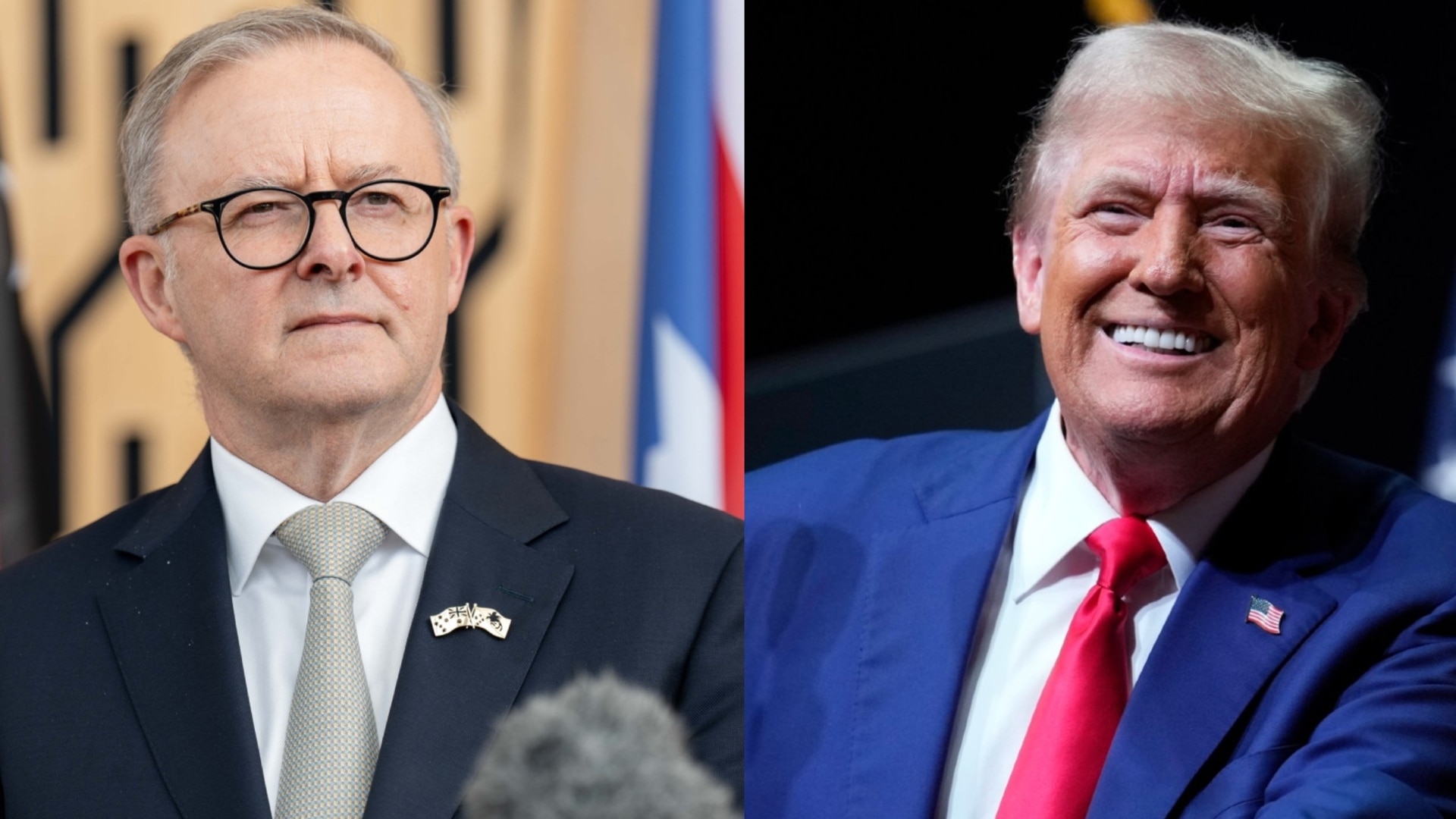
As opposition leader he would endlessly bark at Scott Morrison to “pick up the phone” to Xi Jinping to resolve the trade war China had launched against Australia.
This was one of his chief complaints against the former prime minister, whether it was Xi, Trump or any other world leader at any given time.
The Labor leader clearly never envisaged a world in which he himself would have to deal with Trump as US President. Now the shoe is on the other foot. He is scrambling to explain how Australia could have been caught flat-footed on Trump’s revival of a tariff war on steel and aluminium.
It couldn’t have come at a worse time for Albanese.
If, as expected, Australia is included in the latest executive order, the Prime Minister will have no choice but to re-argue the case directly to the US President.
The argument used by Malcolm Turnbull, and then again by Morrison, was that aside from being the closest of security partners, the US enjoyed a trade surplus with Australia.
It was an issue that had to be constantly negotiated. It came up in call after call with Trump.
This is going to require deeper engagement by Albanese with Trump personally. The Left will be appalled if the Prime Minister grovels. The country will be appalled if he fails. Albanese’s risk is that he may achieve both.

As demonstrated under both the Turnbull and Morrison administrations, it is not an issue that is easily resolved and can’t be left to an “officials level” negotiation. And Trump may be less persuaded to give Albanese a concession on this, given what the Prime Minister said about him in the past.
Albanese on Monday said he had a call with Trump “scheduled” within the next 24 hours, arranged prior to the tariffs announcement. But if the last experience is instructive, it will take more than one call to resolve the issue, if it is indeed on the cards.
Albanese’s weakness comes from the fact he has no momentum in the relationship with Trump. He comes at this issue cold. Turnbull and Morrison had an established dialogue with Trump last time he was in office.
Albanese cites Turnbull’s approach as the model for negotiating with Trump, but accuses Morrison of being too close to him. By comparison, Albanese has spoken to Trump once since November. And that was a courtesy call.
It is the relationship that swings these issues. Turnbull did the hard work in talking directly to Trump and successfully arguing Australia’s case. But he was assisted in terms of the broader relationship. Morrison, as treasurer and then as prime minister, had close relationships with Trump’s then lieutenants, including vice-president Mike Pence, secretary of state Mike Pompeo and Treasury secretary Steven Mnuchin.
Mnuchin was crucial in Australia arguing the case behind the scenes to Trump.
And then there was Australia’s then ambassador to Washington, Joe Hockey, who was instrumental as Australia’s man on the ground. It is unlikely that Kevin Rudd has a hotline into Trump’s chief of staff as Hockey did.

Which raises another question. The Coalition used question time to tackle Albanese on his lack of dialogue with the mercurial US leader. Peter Dutton was careful to ensure the Coalition wasn’t seen to be barracking against Australia. Albanese said Australia would approach the issue “diplomatically”.
“Australian people know I will always stand up for them and stand up for Australia’s national interest,” he said on Monday after Trump’s announcement.
He implied that Foreign Minister Penny Wong and Defence Minister Richard Marles had raised the issue with their counterparts during recent trips to the US.
But as Turnbull said on Monday, it is up to Albanese himself to cut a deal personally.
Apart from broader political optics, should the tariffs be applied and jobs put at risk, there are key Labor seats that could be affected during the election campaign. Paterson and Shortland in the Hunter Valley – home to the Tomago aluminium smelter – and Gilmore on the NSW south coast, where many Port Kembla steel works employees live, come to mind.
The issue of steel tariffs was the feature of multiple calls when Turnbull and Morrison first had to deal with Trump. Albanese can’t leave it to others or officials to solve this. This is not one of those occasions.






Anthony Albanese is at risk of failing his own leadership test on dealing with Donald Trump.